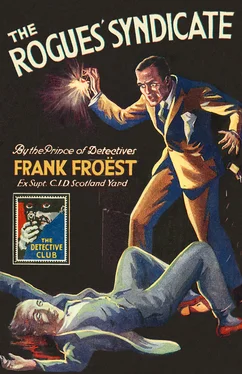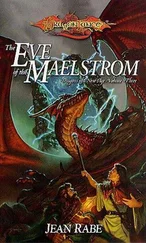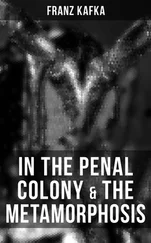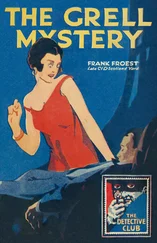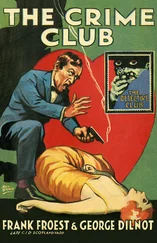Foyle rolled a pencil to and fro across his blotting-pad with the palm of his hand. He interrupted with no question. What Menzies stated as facts he knew the chief-inspector would be able to prove by sworn evidence if necessary. He was merely summarising evidence. The inference he allowed to be drawn, and so far it seemed an inference that bade fair to place a noose round young Errol’s neck.
‘We have got this,’ went on Menzies, ‘from people in Linstone Terrace Gardens, from Greye-Stratton’s old servants, from the house-agents from whom he rented his house, and from Pembroke, of Pembroke and Stephens, who used to be his solicitors. Greye-Stratton was seventy years old, as deaf as a beetle and as eccentric as a monkey. I don’t believe he has kept any servant for more than three months at a stretch; we have traced out a dozen, and there must be scores more. But it is only lately that he has taken to accusing them of being in a plot to murder him. The last cook he had he made taste everything she prepared in his presence.
He had no friends in the ordinary way, and few visitors. Twice within the last year he has been visited by a woman, but whom or what she was, no one knows. She came evidently by appointment, and was let in by the old man himself, remained half an hour, and went away. Practically all his business affairs had been carried on by correspondence, and he was never known to destroy a letter. Yet we have found few documents in the house that can have any bearing on the case, except possibly this, which was found in the fire-grate of the little bedroom he habitually used.’
He extracted from the pile of statements a square of doubled glass, which he passed to Foyle. It contained several charred fragments of writing-paper, with a few detached words and letters discernible.
‘ J. E. Gre … will see … ld you … ues … mother to her death … ous swine … let me hea …’
‘Errol’s writing?’ queried Foyle.
‘I haven’t got a sample yet, but I’ve little doubt of it. Now, here’s another thing. It was Greye-Stratton’s custom to lock up the house every night at dusk himself. He would go round with a revolver and see to every one of the bolts and fastenings, and no one was alowed in or out afterwards. It was one of the grievances of the servants that they were prisoners soon after four o’clock each day in winter. And though he always slept with that revolver under his pillow, we can’t find it.
‘There’s another thing. Greye-Stratton had a little study where he spent most of the day, and there was a safe built into the wall. It may mean nothing, or anything, but the safe was open and there was not a thing in it. Now, we have been able to discover no one who has ever seen that safe open before. It’s curious, too, in view of Hallett’s story about the cheques, that we have not been able to lay our hands on a single thing that refers to a banking transaction—not so much as a paying-in book or a bunch of counterfoils.
‘The doctors say the old man was shot about three hours before we got there; that would be about half-past nine. I don’t know how Hallett struck you, Mr Foyle, but, according to his own account, he must have arrived at Linstone Terrace Gardens at nine.’
Foyle rubbed his chin thoughtfully.
‘You mean, he may have been there when the shot was fired?’
Menzies made an impatient gesture.
‘I don’t know. I own freely I don’t quite take in this yarn, and yet the man struck me as genuine. He’s got good credentials, and if he’s mixed up with the murder, why did he ’phone to me?’
‘Search me,’ said Foyle. ‘What about the daughter? You said there was a girl.’
Menzies stuck his thumbs in the sleeve holes of his waistcoat.
‘That’s another queer point. She was brought up abroad, and scarcely ever saw the old man. Pembroke says she spent her holidays with an old couple down in Sussex, to whom he had instructions to pay three hundred pounds a year. When she left school, he paid the allowance to her direct, but for two years she has not called or given any instructions about it. He wrote to Grey-Stratton, who retorted that it was none of his business—that the allowance would be paid over to his firm, and that if the girl did not choose to ask for it, it could accumulate. He did not seem at all concerned at her disappearance. Take it from me, Mr Foyle, we shall run across some more deuced funny business before we get to the bottom of this. There’s not even a ghost of a finger-print. If only we can find Errol—’
Foyle was too old a hand to offer conjecture at so early a stage of the case; nor did Menzies seem to expect any advice. Hard as he had driven the investigation during the night, the ground was not yet cleared. Until he had all the facts in his possession, it was useless to absolutely pin himself to any one line of reasoning. There was now one man who, on known facts, might have committed the murder; but, plausible as was the supposition that Errol was the man, the detectives knew that at best it was only a suspicion. And suspicion, nowadays, does not commit a man; it does not always justify an arrest. There must be evidence, and so far there was not a scrap of proof that Errol had been within a thousand miles of Linstone Terrace Gardens on the night of the murder.
Menzies went away with his bundle of documents to have them typed, indexed, and put in order, so that he could lay his hand on any one needed at a moment’s notice. He was in for a busy day.
Two advertisements he drafted in the sanctuary of his own office. One was to check Hallett’s own account of the evening before, and to identify, if possible, the street in which the cheques had been forced on him.
‘£1 REWARD. The taxi-cab driver who, on the evening of —, drove a fare from the West End to 34, Linstone Terrace Gardens, Kensington, will receive the above reward on communicating with the Public Carriage Office, New Scotland Yard, S.W.’
The other ran differently, and seemed to give him more trouble. Several sheets of notepaper he wasted, and discontentedly surveyed his final effort.
‘If James Errol, last heard of at Columbus, Ohio, U.S.A., will communicate—’
He crushed the sheet up, flung it in the waste-paper basket, and lifted a speaking-tube.
‘Any newspaper men there, Green? Right! Tell ’em I’ll see ’em in half an hour. Send me up a typist.’
The newspaper Press, if deftly handled, may be a potent factor in the detection of crime. Moreover, the ubiquitous reporter is not to be evaded for long by the cleverest detective living. The wisest course is to meet him with fair words—to guide his pen where there is a danger of his writing too much, and put him on his honour on occasion. Many a promising case has been spoilt by tactless treatment of a pressman at a wrong moment.
Menzies dictated an account of the murder in which he said just as much as he wanted to say and not a word more. The conclusion ran:
‘The stepson of the deceased gentleman, a Mr James Errol, left England for the United States many years ago, and his present whereabouts are unknown. The police are anxious to get into touch with him in order that certain points in connection with his father’s career should be cleared up.’
The chief detective-inspector knew that the simple paragraph would throw into the search for Errol the energies and organisation of every great newspaper—an aid he did not despise. It was not intended as an official statement. The Criminal Investigation Department does not issue bulletins officially. It was an act of courtesy, and incidentally a stroke of policy, to maintain the goodwill of the Press. The reporters might paraphrase it as they would.
He received the newspaper men pleasantly, parried their chaff and too adroit questions with unruffled good humour, and told them little anecdotes which had not the slightest bearing on the murder of Greye-Stratton. They read the typewritten sheets he handed them greedily, and cross-examined him as mercilessly as he had ever been cross-examined at the Old Bailey. A clerk brought a card to him, and he read it without a change of countenance.
Читать дальше
